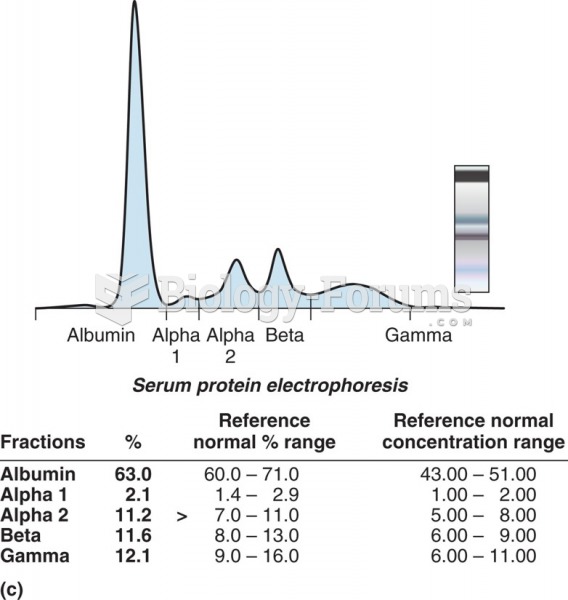|
|
|
As many as 28% of hospitalized patients requiring mechanical ventilators to help them breathe (for more than 48 hours) will develop ventilator-associated pneumonia. Current therapy involves intravenous antibiotics, but new antibiotics that can be inhaled (and more directly treat the infection) are being developed.
The most common treatment options for addiction include psychotherapy, support groups, and individual counseling.
Most childhood vaccines are 90–99% effective in preventing disease. Side effects are rarely serious.
Famous people who died from poisoning or drug overdose include, Adolf Hitler, Socrates, Juan Ponce de Leon, Marilyn Monroe, Judy Garland, and John Belushi.
The first oral chemotherapy drug for colon cancer was approved by FDA in 2001.







